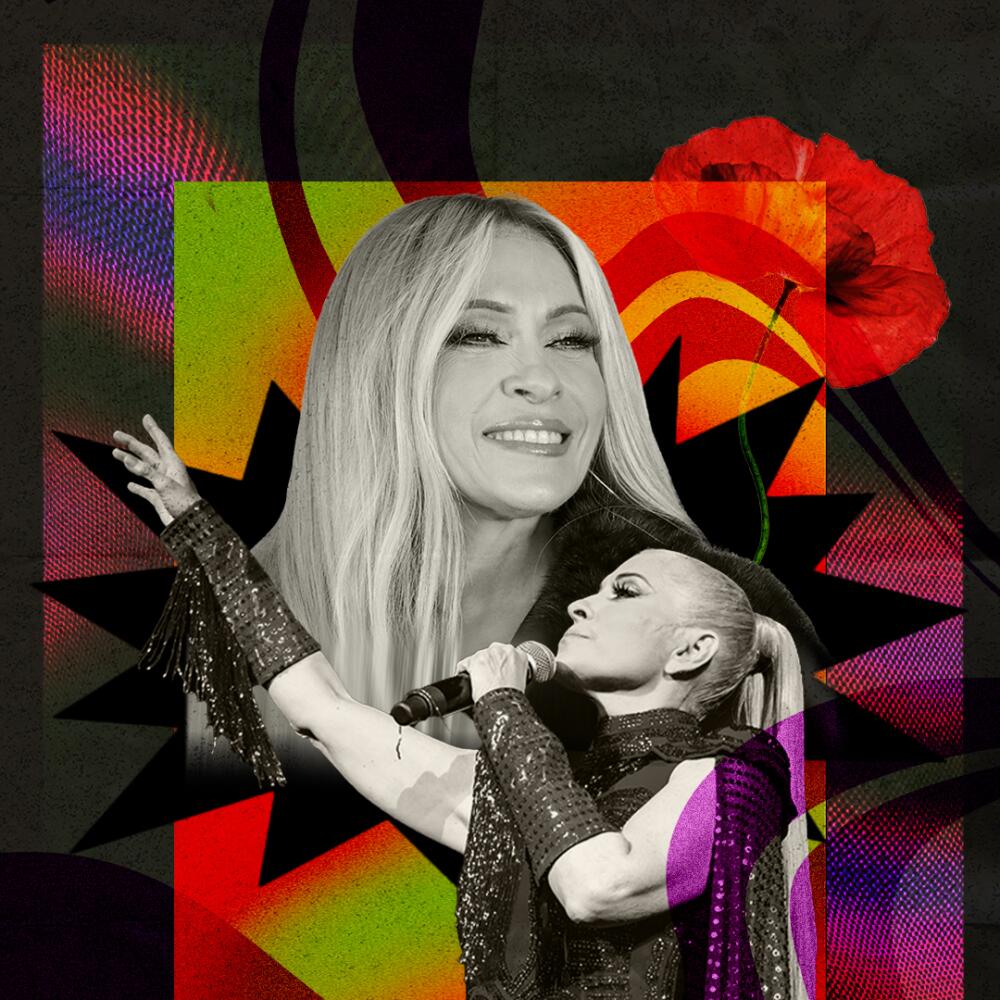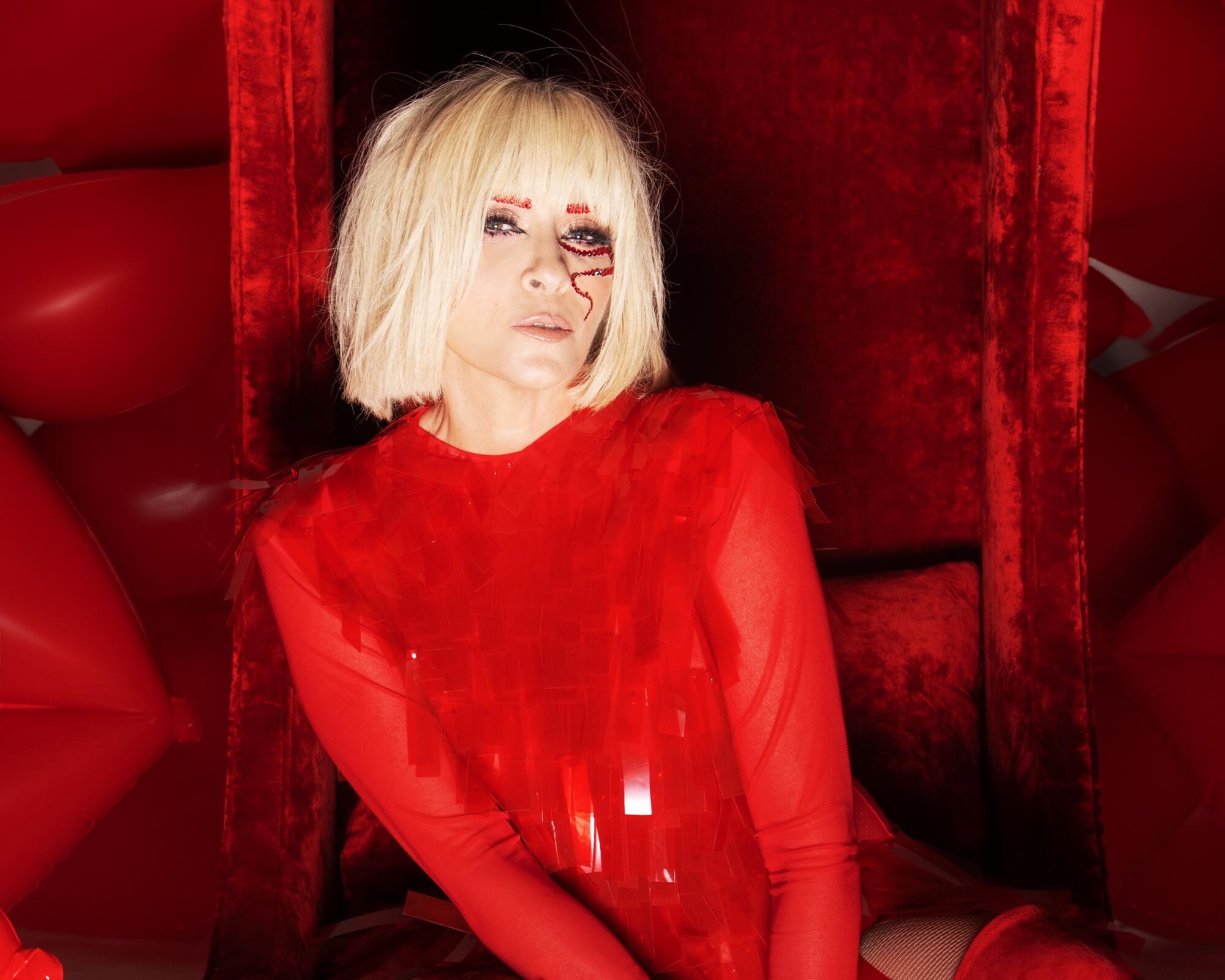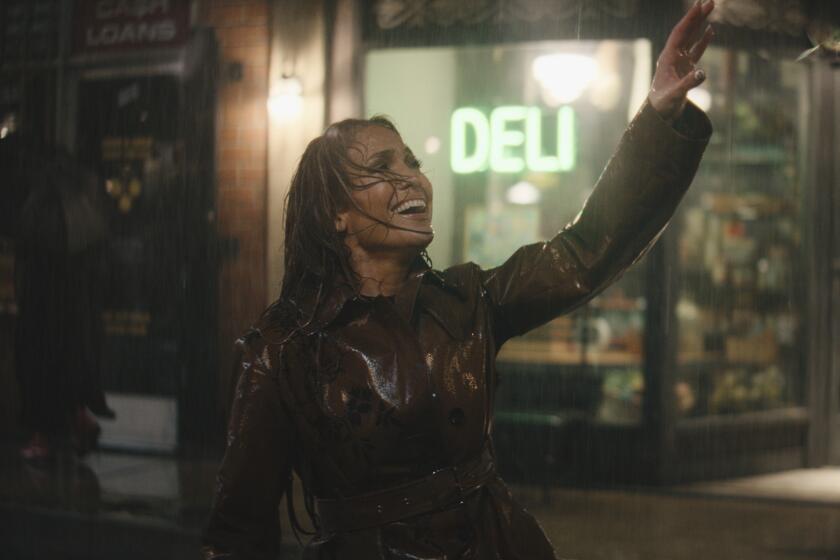
The first thing that pops into my head when I think of Yuri is the hair.
Her electric-white blonde hair that’s been chopped, teased and styled every which way, making a Google image search of her feel like gazing upon the old, framed photos hanging at your local salon de belleza. Today, she’s rocking a long, wavy Balayage with a crop of blunt bangs — a reminder that she’s an artist of the present, even if she fondly recalls her past.
“If you don’t reinvent yourself, you stay in your decade,” says the pop singer over Zoom in an animated voice moving at 1.5x speed. “You’ll be stuck in the ‘80s with the same hair and clothes and songs and arrangements. Imagine me with the same hair as before? With the same sequins as before? ¡Qué horror!”
Jennifer Lopez launched a new trailer for her autobiographical musical movie, “This Is Me ... Now: A Love Story,” which comes out on Feb. 16.
Born Yuridia Valenzuela Canseco in the Mexican port city of Veracruz, Yuri became an unstoppable force in the ‘80s and ‘90s. She racked up telenovela credits (“Volver A Empezar” is a personal fave, with an eponymous banger of a theme song to boot) and major hits in Latin America, including ““Maldita Primavera,” “Qué te Pasa” and “Hombres al Borde de un Ataque de Celos.” Teens and tias alike imitated her hair style du jour and, after her second appearance in Playboy Mexico, the blond bombshell earned herself the nickname “la Madonna Mexicana” – a nod to the iconoclastic pop queen known for her reinvention.
The mid ‘90s brought her first major transformation: Yuri became an evangelical Christian, and her work became a reflection of her faith. She returned to secular music in the early aughts, and has spent the time since jumping from genre to genre, collaborating with acts like Grupo Firme, Mijares, Yandel and Jesse & Joy. Ever the multiplatform star, Yuri has also been a staple of reality television in Mexico — among her many credits are serving as coach for two seasons of “La Voz,” Mexico’s take on “The Voice.”

Now, at 60 years old, the singer continues to pound the pavement with the U.S. leg of her “Euforia 2.0” tour, which comes to Inglewood’s YouTube Theater on Friday. She credits her career longevity to her willingness to adapt and her love of the craft.
“If you lose your passion for the work you do, be it being a doctor or presenter or whatever career that you’ve entered, retire. Retire because you’ll never grow,” she says. “Passion has made me grow, made me give my public the very best in every aspect of my work. I’m a woman who loves what I do, and am impassioned by what I do. And then I do it so I can eat.”
Yuri’s decades-long trajectory has not been without controversy. In recent years, the singer has made comments and jokes about the LGBTQ+ community that has led to backlash among her queer fanbase, including a 2017 interview with CNN in which she said she opposed adoption by same-sex couples because it went against her religious teachings. When I asked her about it, she denied internalized homophobia, saying that dancers, choreographers and hairstylists “from the community” wouldn’t work with her if that were the case.
“I’ve said, if at any point I spoke poorly about the community and have been hostile, show me the interview and I’ll ask for forgiveness,” she added. “I’m a woman of God. I’m a Christian. I’m never going to attack anyone. I have my point of view, it can be different than yours. If you’re Catholic, why am I going to be mad at you if you’re Catholic? Those are your beliefs and I respect them. If I have mine, respect mine.”
Yuri professes that her faith teaches her to love all people, and assures her deep love for members of her team and family who are queer. She also makes it clear that she wouldn’t be where she is without her gay fans — they mean the world to her and she hopes they feel safe and welcomed at her shows, which she promises will be an “espectáculo” featuring gorgeous designer costumes, a full mariachi and a full run of her biggest hits.
“A lot of artists play nothing but songs from their new album,” she says. “Well, who knows those songs? No one knows them yet! It’s like if you’re going to see Luis Miguel and he doesn’t play ‘La Incondicional.’ You say, now wait! I came to hear that one!”
Our entire conversation had the cadence and zip of being four palomas deep with your favorite tias at a quinceañera or wedding. There’s nostalgic familiarity, laughter and sass, along with a genuine admiration for the lives they’ve lived. And then something is said that reminds you that for all their wisdom, part of them is stuck in the past. There’s still room to grow, and you’re left hoping that the reinvention that matters most will one day come.
Alex Zaragoza is a television writer and journalist covering culture and identity. Her work has appeared in Vice, NPR, O magazine and Rolling Stone. She’s written on the series “Primo” and “Lopez v. Lopez.” She writes weekly for De Los.
More to Read
The Latinx experience chronicled
Get the Latinx Files newsletter for stories that capture the multitudes within our communities.
You may occasionally receive promotional content from the Los Angeles Times.







